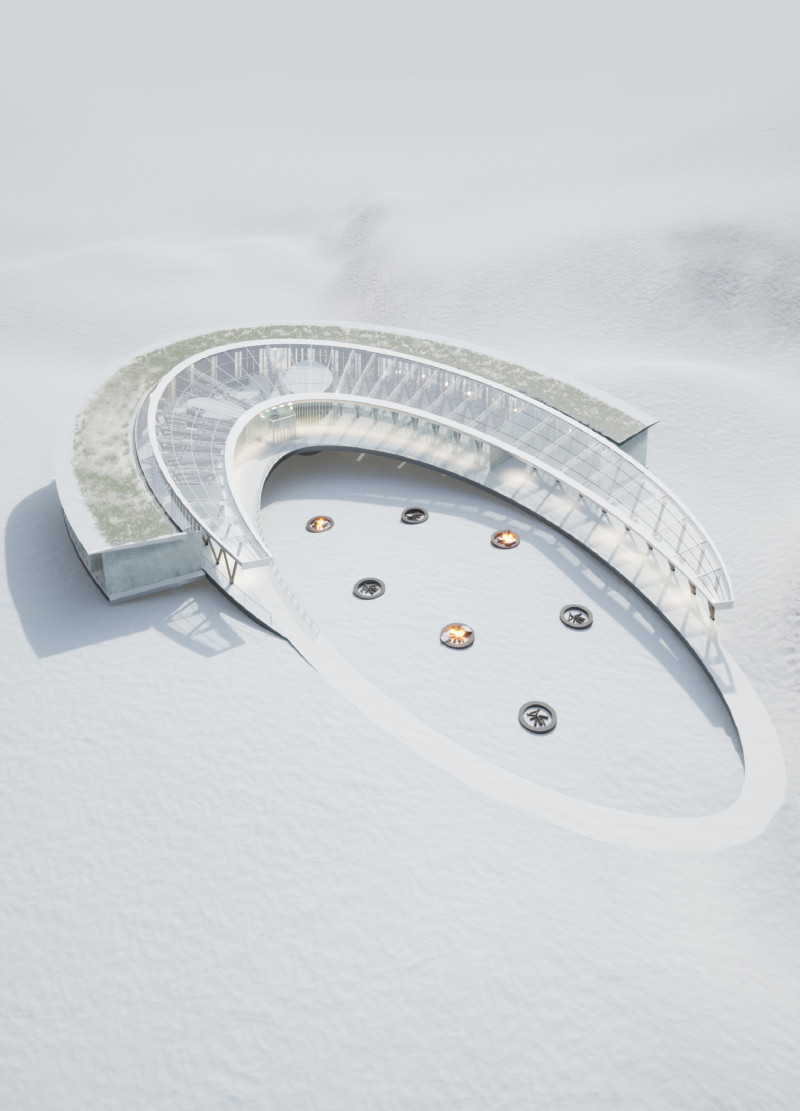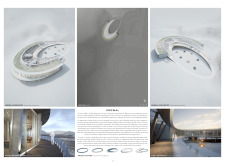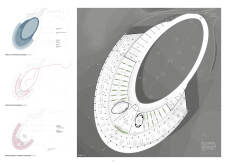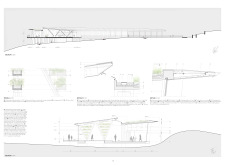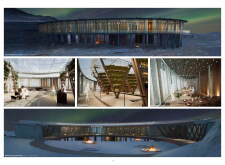5 key facts about this project
The main component of GROWAL is the restaurant, housed within the largest oval structure. This space accommodates flexible seating and caters to diverse events and gatherings, reinforcing its role as a communal hub. The design prioritizes sustainability, with strategic site orientation and careful material selection, ensuring that the building harmonizes with its natural context.
The circulation design is intuitive, allowing for easy movement through public and private areas. Emphasis on transparency is evident in the extensive use of glass, which maximizes natural light and promotes connectivity with the external environment. Each element contributes to an overall user experience that is centered on accessibility and interaction.
The unique aspect of GROWAL lies in its architectural configuration and sustainable technology integration. The oval design not only supports structural integrity but also enhances the dining experience by fostering a closer connection to the landscape. The incorporation of green technologies, such as bio-lights and irrigation systems, also sets the project apart from conventional restaurant designs, showcasing a commitment to environmental sustainability.
Sustainability extends to material usage, with concrete, glass, steel, treated natural wood, and terrazzo flooring employed throughout the structure. These materials serve both functional and aesthetic purposes, contributing to the project's overall coherence while ensuring durability and ease of maintenance.
The GROWAL project exemplifies a forward-thinking approach to architectural design by aligning culinary arts with environmental awareness. The thoughtful integration of space, functionality, and sustainable practices delivers a project that stands out in the realm of restaurant architecture.
For more insights into the GROWAL project, including detailed architectural plans, sections, and designs, readers are encouraged to explore the project presentation further to appreciate its architectural ideas and overall impact.


